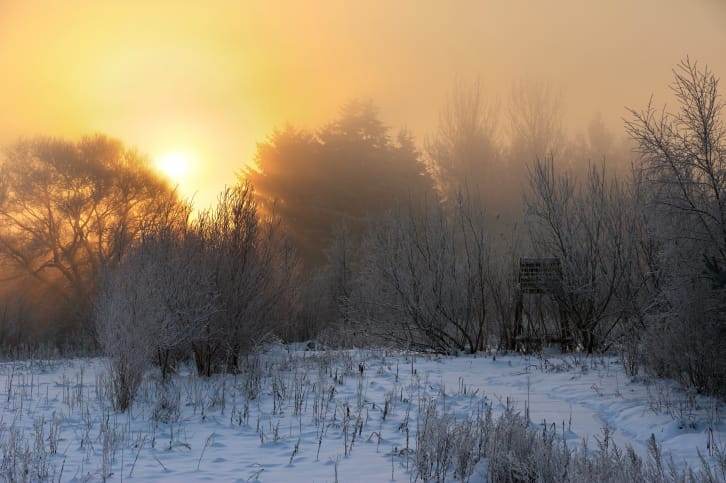 Winter brings the holidays, the new year, and – for many – hunting. It may be too late to get in that big game hunting, but in most areas there’s plenty of small game hunting to be had. In Colorado, for example you can hunt pheasant, quail, rabbits, squirrels, prairie dogs, bobcats, coyotes, mink, badger, raccoon, pine marten, gray fox, opossum and muskrat in December and January. From mid-December to mid-January, you can hunt mourning doves in Tennessee. You can hunt fox, raccoon, skunk, weasel, mink, muskrat, beaver and river otter from the end of December through the end of January in Ohio. So, regardless of season, there’s no shortage of game to hunt no matter what state.
Winter brings the holidays, the new year, and – for many – hunting. It may be too late to get in that big game hunting, but in most areas there’s plenty of small game hunting to be had. In Colorado, for example you can hunt pheasant, quail, rabbits, squirrels, prairie dogs, bobcats, coyotes, mink, badger, raccoon, pine marten, gray fox, opossum and muskrat in December and January. From mid-December to mid-January, you can hunt mourning doves in Tennessee. You can hunt fox, raccoon, skunk, weasel, mink, muskrat, beaver and river otter from the end of December through the end of January in Ohio. So, regardless of season, there’s no shortage of game to hunt no matter what state.
Safety
Safety boils down to the 3 W’s: Weapon, Weather and Where/When/Who
Weapon
All of the usual hunting safety tips apply during the winter, with some added protection necessary. As always, follow THINK:
T: Treat every weapon as if it’s loaded
H: Hunter orange should always be worn
I: Identify target and what lies beyond
N: Never point muzzle at anything other than your target.
K: Keep your finger off the trigger until you’re ready to fire.
Weather
Be prepared for the weather. Dress in layers. The heat captured in between the layers will help insulate and keep you warm. Your inner layer should be something that wicks moisture away from your skin and the outer layer should be something that is waterproof and windproof. Pay special attention to your extremities – fingers, toes, head and neck – as these are the areas most likely to feel the effects of frostbite first. Mittens keep your fingers warmer than gloves. Adding a warming packet to your mittens and boots can help keep your tootsies from freezing. Make sure your footwear is waterproof. Be sure to wear a hat and/or earmuffs.
Where/When/Who
Before you head out to hunt, be sure you have someone to hunt with and let someone know the 3 Ws – where, when and who.
Where: Let your emergency contact know where you’ll be hunting. Draw a map if needed to ensure that your emergency contact knows the right location.
When: Let your emergency contact know when you’re leaving and what time you’ll be back. If you’re going to be later than expected – even a few minutes late – call to check in.
Who: Tell your emergency contact who you’re going hunting with and his or her phone number(s).
If you’re going hunting by yourself, it’s even more important to let your contact know the where and when. If you’re injured in the woods, your contact may be the only one that can save you.
Hunting can be a great, safe experience free of hunting accidents as long as you prepare. Practice weapon safety. Dress for the worst-case scenario weather. Have an emergency contact that knows your whole plan including where, when and who. Following these tips will give you safe winter hunting.



